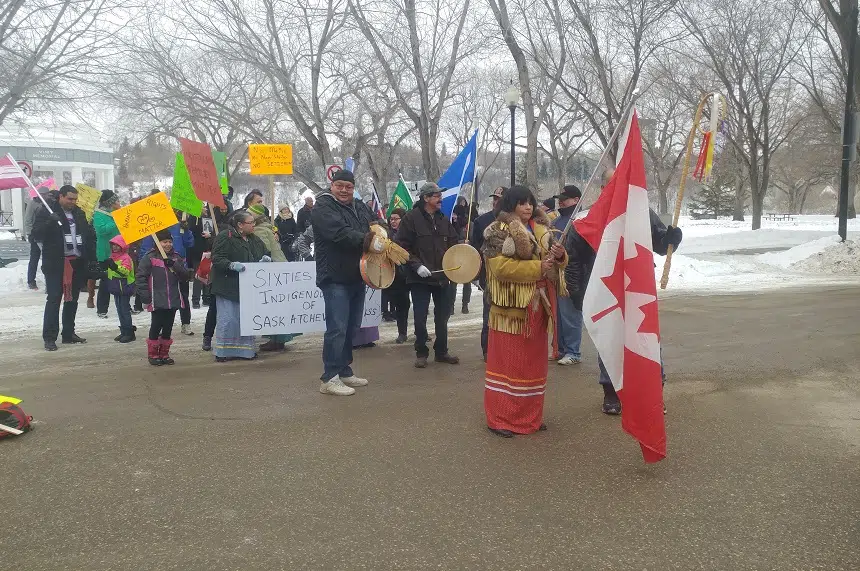Saskatoon is going to be the centre of attention for First Nations and Métis people across the country on Thursday, as a landmark court hearing addresses the ’60s Scoop settlement.
A “fairness hearing” is planned to take place, as a federal judge hears concerns about — and defence of — an $875 million settlement between the federal government and lawyers representing survivors.
Over 100 submissions from ’60s Scoop survivors and advocates are planned at the hearing. The concerns range from issues with lawyers being paid out $75 million out of the settlement funds, to Métis people not being included in the settlement at all.
Former provincial Métis leader Robert Doucette, a Scoop survivor himself, will be making his case to the judge.
“I keep hearing the word reconciliation, that this (settlement) will bring closure,” he told 650 CKOM. “That’s not going to happen with this agreement, especially not for Métis people.”
Doucette is hoping to convince the judge that the federal government bears responsibility for how Métis children like himself were stripped from their families and put up for adoption for years.
He said others want the chance to tell their stories of abuse at the hands of adoptive parents, and they feel a settlement now would defeat that possibility.
“If they accept this agreement, the federal government gets let off the hook for the sexual and physical abuse ’60s Scoop survivors have endured all these years,” he said.
Regina lawyer Tony Merchant, who helped First Nations groups reach the settlement, said he’ll be among 25 barristers at the hearing.
He said while he sympathizes with Métis survivors, their battle is better fought against individual provinces.
“The primary responsibility to Métis, non-status Indians is the province who took them,” Merchant said, noting his law firm has several active lawsuits against provincial governments on behalf of Métis clients.
While the current federal settlement stands to pay each First Nations survivor between $25,000 and $50,000, Merchant hopes the individual provincial suits can net more.
He added given the current legal framework, Doucette’s arguments aren’t likely to sway the judge in ruling the federal settlement as “unfair.”







